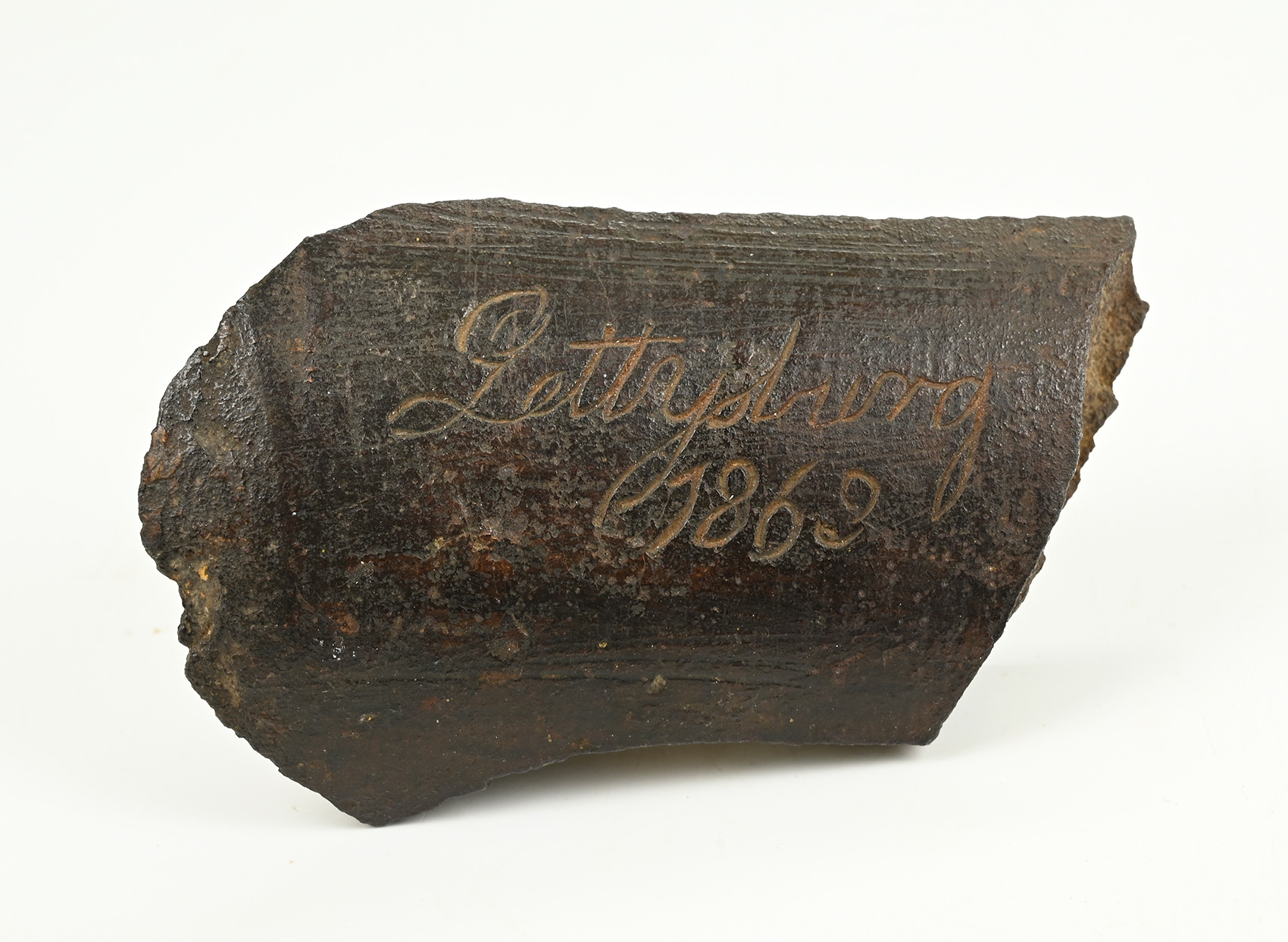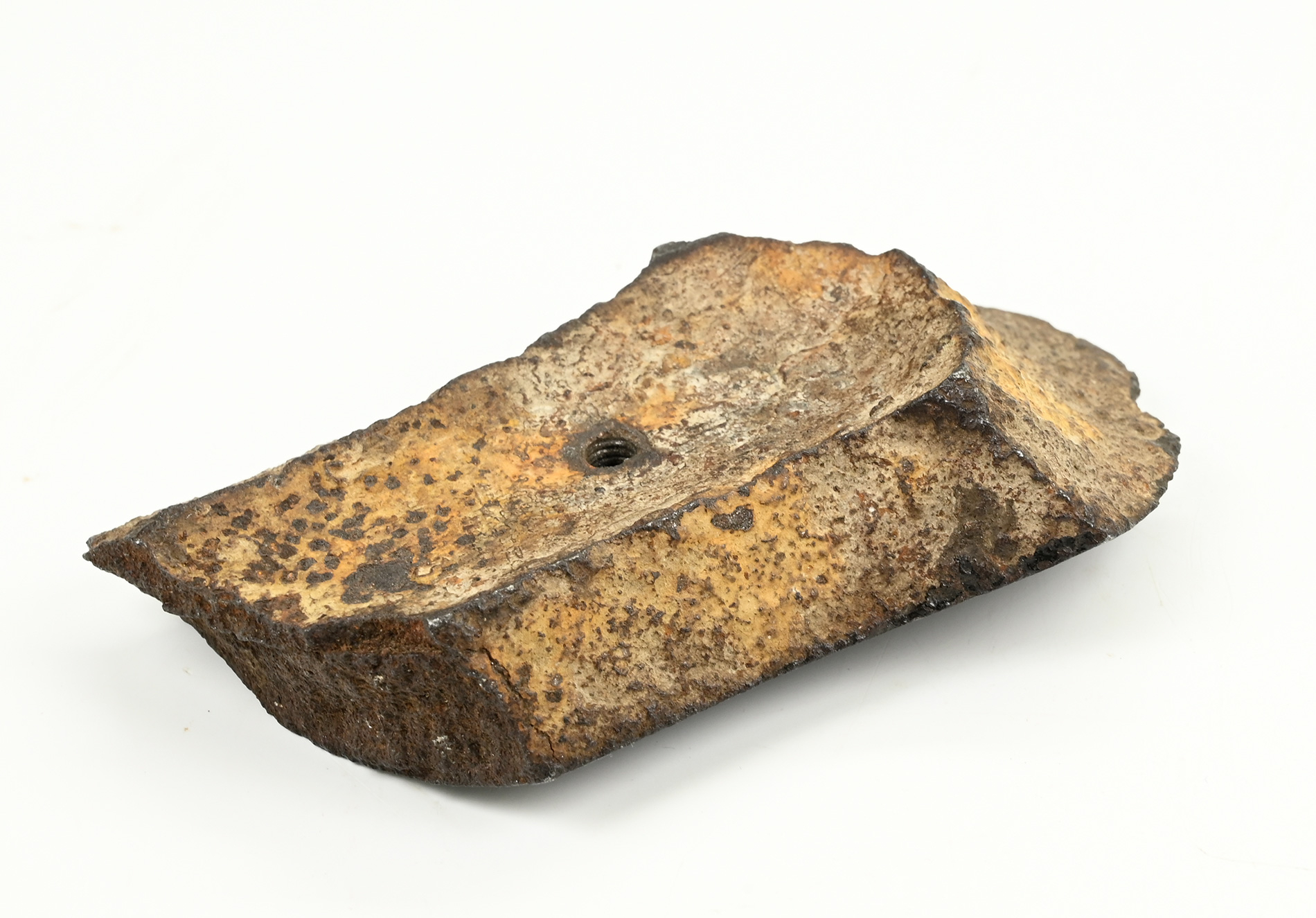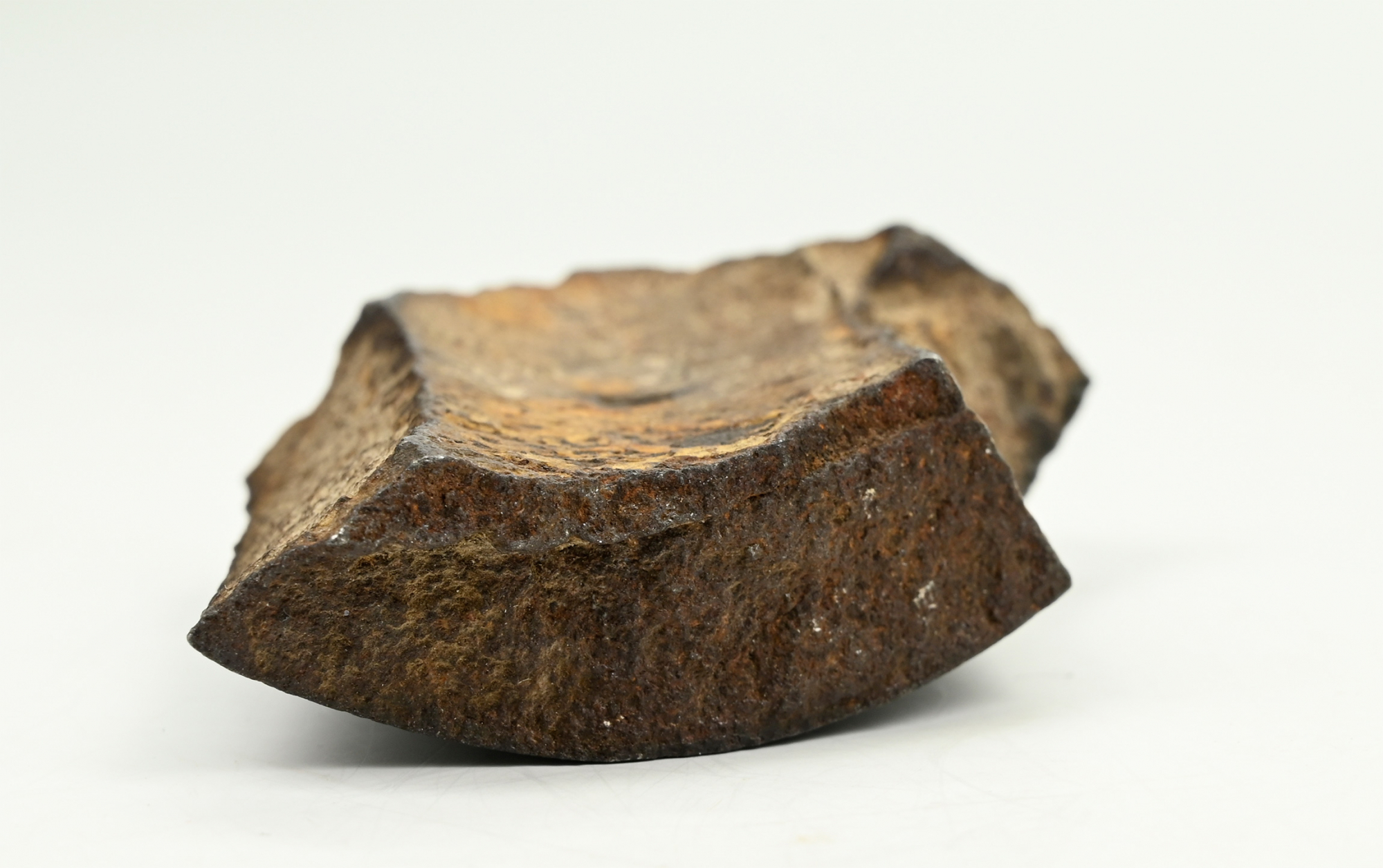site search
online catalog
GETTYSBURG 3-INCH SHELL FRAGMENT ENGRAVED BY WOODWARD

Hover to zoom



$675.00 SOLD
Quantity Available: None
Item Code: 2022-147
This is a fragment of a 3-inch rifle shell recovered at Gettysburg and engraved by Edward Woodward in his characteristic script: “Gettysburg 1863.” Woodward was a British immigrant and a gunsmith by trade, who moved to Gettysburg in 1863 to help the U.S. Christian Commission care for the injured after the battle. He remained here for the rest of his life and developed an active trade in selling battlefield relics visitors as early as September 1865.
He had a wonderful eye and sold not only individual pieces and shadow box frames of relics, but also relics made useful and ornamental, like artillery shells made into oil lamps or door stops. He frequently noted individual find locations on the pieces or labeled them on the wood bases of his desk displays that often incorporated a U.S. eagle cast from brass artillery fuses along with shell fragments, bullets and canister balls, sometimes with the broken tip of a bayonet. This fragment may have come individually or from one his displays, but his script inscription is unmistakable and dates before his death in 1894. His creations were so popular that a number of rival relic dealers imitated his style and continued to create them, but without his eye for detail or sense of arrangement and presentation. See Gettysburg Battlefield Relics and Souvenirs by O’Donnell, Hazard and Boardman for details on Woodward and others. It is a fascinating subject. [sr] [ph:L]
~~~~~~~~~~~~~~~~~~~~~~~~~~~~~~~~~~~
THIS ITEM, AS WITH ALL OTHER ITEMS AVAILABLE ON OUR WEB SITE,
MAY BE PURCHASED THROUGH OUR LAYAWAY PROGRAM.
CLICK HERE FOR OUR POLICIES AND TERMS.
THANK YOU!
Inquire About GETTYSBURG 3-INCH SHELL FRAGMENT ENGRAVED BY WOODWARD
Most Popular
Historical Firearms Stolen From The National Civil War Museum In Harrisburg, Pa »
Theft From Gravesite Of Gen. John Reynolds »
Selection Of Unframed Prints By Don Troiani »
Fine Condition Brass Infantry Bugle Insignia »
featured item
CAPTURED CONFEDERATE SECOND NATIONAL FLAG, UNUSUAL VARIATION WITH MADAUS LETTER, FROM A SOLDIER IN THE 59th NEW YORK
This 2nd National Confederate Flag was purchased in the 1980s by a well-respected Florida dealer/collector directly from descendants of the Union soldier who had kept it as a trophy. It comes with a 1988 letter on Milwaukee Public Museum letterhead… (1179-019). Learn More »
site search
Upcoming Events
The shop is currently closed so that we may conduct our annual inventory. We are available by phone… Learn More »


